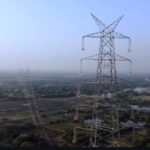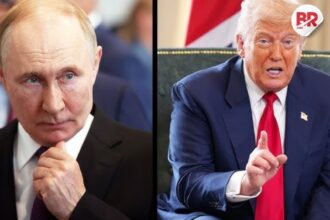
Crude oil prices are back in the spotlight—and this time, they’ve got teeth. Tensions in the Middle East sent global oil prices surging, shaking up the stock market on Monday morning.
Here’s what went down.

Over the weekend, U.S. strikes on Iranian nuclear facilities raised the heat in the already-tense Gulf region. That was enough to make oil prices spike. But things escalated further when Iran’s parliament gave the green light to shut the Strait of Hormuz. If that name sounds familiar, it should—nearly 20% of global oil and LNG flows through this one narrow waterway.
That’s big. And the market reacted instantly.
Oil Prices Jump, OMCs Slip
With rising geopolitical risk, Brent crude climbed 2% to $78 per barrel, and WTI crude rose 1.7% to $75. That’s great news for oil producers—but not so great for oil marketing companies (OMCs) like HPCL, BPCL, and IOC.
At 9:20 AM, HPCL dropped 0.7% to ₹389.7, BPCL slipped 0.7% to ₹311.45, and IOC was down 0.6% at ₹137.76. Why the drop? Higher crude oil prices raise input costs for these companies, and they often can’t pass on the extra burden to consumers due to pricing controls and demand sensitivity. That hits their margins—hard.
ONGC, Oil India Shine
On the flip side, upstream players like ONGC and Oil India are laughing all the way to the bank. These companies earn more per barrel when crude prices go up, while their costs stay largely fixed.
ONGC was up 0.6% at ₹253.35, and Oil India rose 0.5% to ₹466.95. No surprise here—investors are betting on stronger earnings from the exploration side of the oil game.
Also Read Core Sector Growth at 0.7% in May: Cement, Steel Up; Oil & Gas Lag
What Analysts Say
Emkay Global says that unless crude averages much above $75/bbl, earnings estimates for HPCL, BPCL, and IOC aren’t at serious risk. Falling global LPG prices and subsidy support could still offer upside for OMCs.
Meanwhile, JM Financial is bullish on ONGC and Oil India. They say that every $1 rise in crude prices boosts earnings per share (EPS) by 1.5–2%. But they’re cautious on downstream OMCs—pointing to high capex and inflated valuations.
The Bigger Picture
Crude oil isn’t just a barrel of black gold—it’s a market mover. What’s playing out in the Middle East is more than a regional conflict; it’s a financial tremor rippling through energy and equity markets worldwide.
For now, investors are clearly favouring explorers over marketers. That may shift again if crude prices stabilise—but with the Strait of Hormuz under threat, the pressure isn’t going away anytime soon.
Also Read B-2 Stealth Bombers: Why the US Chose B-2 Stealth Bombers for the Iran Nuclear Attacks?












